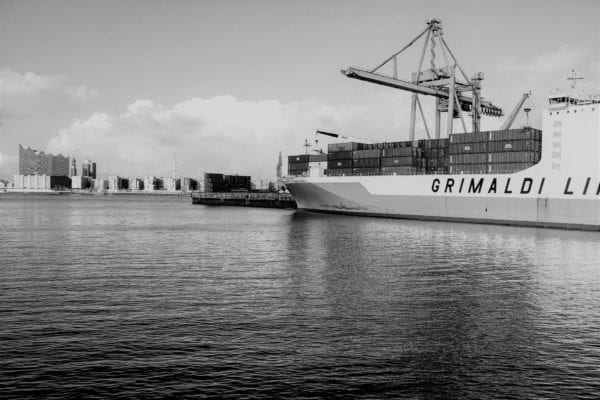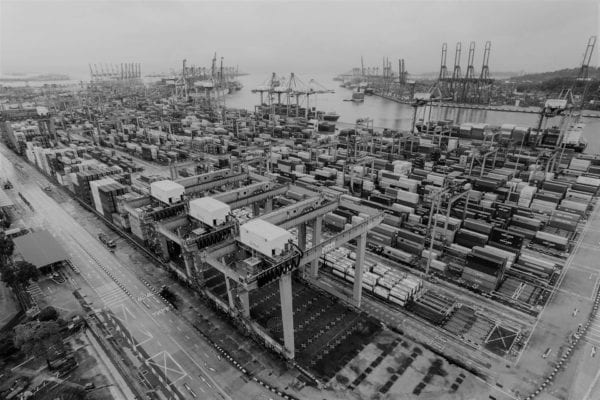Estimated reading time: 15 minutes
Maxwell-Scott is an international brand, but most significantly a European one. With a family-run factory based in the heart of the Italian leather industry, headquarters in the historic English town of York and important markets across the European Union, Brexit has been a key concern since the very beginning. We, however, are simply one company – one in many within our industry and others which will be affected by changes in law and status, particularly concerning trade. Research by Bibby Financial Services states that 61% of UK Small Medium Enterprises (SMEs) that import from the EU would expect a fall in profits if the access to the EU single market was revoked. The very essence of the EU, after all, is to encourage the integration which is now relied upon. Brexit and its effect on trade and trade law must, therefore, be explored: the problems, the positives and the possible plan.
The most significant problem in regards to Brexit is the general environment of uncertainty that it has created. This means that discussions concerning the post-Brexit landscape rely heavily on theory and conjecture. Whilst the final deal, if there is one at all, remains unclear the subject of the future of trade and trade law must be taken in conjunction with an understanding that nothing, yet, is certain. There are, however, key areas which will be affected by the situation. The first is the impact on people. The Business of Fashion founder Imran Amed wrote a particularly scathing piece about the dire prospects for the fashion industry regarding Brexit and the prospect of a no-deal which will:
“irrevocably harm the future of the British fashion industry.”
Amed’s article follows on to focus heavily on talent and the problem of immigration – a highly polemic discussion within the Brexit campaign in 2016. In terms of trade and trade law more specifically, people must be considered as the consumer. Matthew Duncombe, a transactional lawyer advising on commercial matters on a local, national and international basis for DLA Piper, highlights that the rules of e-commerce are grounded in European law. An example of such EU legislation protecting the consumer is the ‘cooling off period’ during which a customer is allowed to return an item. With the uncertainty of the legislative landscape post-Brexit customers may find that purchasing is no longer aptly protected. A simple example, this speaks to a wider problem: Brexit has the chance to affect the way in which people earn their money and spend it. This would inevitably heavily influence the amount of trading and calls for a reassessment of trading laws concerning the consumer when the UK is no longer a member of the EU.

Secondly, there may be significant consequences to the supply chain. With an agent and distributor in different countries, companies could run into problems which did not exist under the EU legislation of free movement of people and goods between member states. As mentioned, at Maxwell-Scott, our supply chain relies solely on an Italian factory which means that disruptions in, and changes to, trade law between the UK and the EU is a crucial concern. Question marks can be seen over key areas of the supply chain. Firstly, agents under European law are treated akin to employees. Therefore, when a contract ends there is a redundancy type payment. It is unclear if this will be rejected under post-Brexit trade law, ensuring in turn uncertainty for those producing across the EU. Moreover, e-commerce and store agreements are based in EU competition law which prevents the creation of cartels and monopolies which would be detrimental to consumers. In the event of Brexit this will be most acutely felt in the EU’s loss of enforcement power and a gradual divergence in application of EU and UK competition law. Lastly David Miller, Customs & AEO Consultant and co-founder of The Customs People, argues that whilst a Brexit with a ‘deal’ may alleviate the need for duty to be paid, this is subject to some kind of free trade agreement being implemented. Duties would impact trade by increasing the price and slowing down the process. There would be the potential for disruption to supply chains, for example, since all imports/exports will have to go through customs. Overall, Brexit has the potential to influence the supply side of trade and trade law – the type of deal made deciding the extent to which this is the case. In the words of Geoff Runcie, ex-chair of the British Chambers of Commerce and CEO and spokesperson for a company called Edge,
“What the post-Brexit trading ecosystem will look like is far from certain. However, what is guaranteed is that the current stable trading environment will change. Businesses that currently know their way around the systems and regulatory frameworks will be faced with new rules that do not mirror those of Europe, impacting everything from border controls to tariffs.”
Next, a more nuanced effect of Brexit on trade and trade law is its influence over branding and commerce. DLA Piper’s Duncombe highlights the problems regarding intellectual property (IP) in the post-Brexit environment as IP is so inextricably linked to EU regulation. In terms of theory, IP laws are crucial to fostering an economic atmosphere of creativity and investment as it incentivises entrepreneurs to benefit from their innovation. This is one of the building blocks of production, trade and thus, growing the economy. Brexit presents as possible vacuum for IP and most certainly will result in a lack of the unifying effect of EU IP law. At the moment, European Community Marks are in place. They protect brands. As part of the joint UK and EU statement in June 2018 the government is seeking, as part of the Withdrawal Agreement negotiations, to agree arrangements to protect all existing registered European Union Trade Marks, Registered Community Designs, and Unregistered Community Designs by creating more than 1.7 million comparable UK rights. The plan is for these to be granted automatically and free of charge. However, it is still unclear how IP laws will be applied at the point of exit, creating an inevitable problem for trade if the law is in itself undetermined. As a luxury fashion brand, it is vital to maintain IP laws which ensure the maintenance of a brands integrity and unique character. This is why it serves a distinct issue to commerce and trade once the UK leaves the EU.
The very essence of the EU was to unify this geographic area. After two World Wars, there was a desire to integrate economically in order to create a single market which was as one rather than divided. With this sentiment at its core, the UK’s removal from the EU is understandably difficult. Since 1973 the UK has been intertwined with the EU – for trade and trade law this is the same. The very foundations on many of the laws are based in european legislature, plus our trading network aligns with european unification. For consumers and businesses, therefore, it is still uncertain the extent to which these Brexit-related considerations will touch day-to-day transactions.

Whilst the post-Brexit plan still appears rather insurmountable, there are some possible benefits to trade that must be considered. Miller argues that the most evident benefit to trade relating to Brexit is that the UK will be able to negotiate its own Free Trade Agreements, which is not permitted under EU membership. Who these new trade agreements will be with, however, is yet to be identified. This could provide a wide array of new markets, particularly amongst emerging economies, which may increase trade. Trade is significant as it is the driver of growth. The relaxation of the trade agreements that can be made once the UK leaves the EU could increase trade by increasing the opportunities to swap goods and services with a wider market. In addition, another ‘positive’ aspect of a no deal Brexit is that the government is proposing to introduce a scheme whereby no import VAT would be paid on any imports be that from the EU or non-EU countries. For current importers this would be beneficial as it would assist cash flow. These companies would no longer need to pay VAT at the point of import and then claim it back on a VAT return but instead merely declare a VAT return. The possibilities that Brexit offers in terms of increased trade and revived trade law could mean that it is a largely positive change for UK companies.

However, there is also the chance of a no deal Brexit – that it to say that by March 2019 no deal has been agreed upon and the UK leaves the EU without a well-defined future path. Richard Jaques (Senior Associate) and Shaukat Ali(Director) from the Competition & EU Team at law firm Walker Morris LLP state simply that the main areas of risk related to such a Brexit outcome for companies include:
(a) the impact of currency fluctuations
(b) introduction of new tariffs
(c) the risk of supply chain disruption
(d) loss of free movement of people
(e) the loss of freedom of establishment.
A practical discussion of these factors highlights the damaging possibilities that a no deal Brexit provides. Understandably a no deal outcome thrives on the uncertainty of the situation – a characteristic which is dangerous for any economy as evidenced by the pound depreciating following Theresa May’s September statement on the subject. In fact, the government recently admitted that existing agreements which provide 12% of the UK’s total trade will be lost if a no deal Brexit materialises. This would be a significant repercussion to the UK economy and aptly shows the harm that no deal could cause. A no deal outcome, then, in any way equals an uncertainty in trade law, the economy and the daily practicalities of trade. It is most likely that the short term solution would be to adopt a continuation the same laws prior to leaving in order to maintain a status quo, but this is for some would be politically hard to swallow.
Indeed, in the case of a no deal, the trading laws of the World Trade Organisation (WTO) may be enacted as the directing force. The WTO is “a global system of trade rules” as an organisation which helps to negotiate trade deals, settle disputes and support emerging economies onto the global stage. It has over 160 members which represents 98% of world trade. Reliance upon such a structure for a sustained period however is unlikely. Duncombe references the historical success of similar global organisations as evidence that such organisations are only good if they have teeth – nations do not necessarily want to commit and this will continue due to the limited credence. So, a deal would be unequivocally preferable. Two of the main models regarding trade and trade law that thus need examining are that of Norway and Canada.
The Norwegian Model
Norway is a member of the European Economic Area (EEA) which grants it full access to the single market whilst it makes sufficient financial contributions and applies the majority of EU laws to trade without being a member of the EU. In February of this year The Economist stated that “the EEA model for Britain is one the EU would be happy with” but that this would not be a viable option. The Prime Minister has repeatedly rejected the so-called “Norway option” as it would mean staying in the single market, which would be a huge break from the government’s current policy of leaving it. In any case it would need to be a bespoke deal as the varied and larger economy of Britain may mean that such a model does not work as well as it does for the thriving Norway. At the same time, the UK must not be seen as ‘cherry picking’ what it wants from the EU as, from the european perspective, this would limit the integrity of the union. Ergo, in terms of trade and trade law, the Norwegian model seems an unlikely option – politically and practically.
The Canadian Model
The Comprehensive Economic and Trade Agreement (CEFTA) is the free trade agreement between Canada, the EU and its member states. Sections of it came into force (provisionally) on 21 September 2017. The CEFTA then is a mixed agreement which is still awaiting full ratification by national and regional parliaments of the EU’s member states. It removes tariffs on the majority of industrial and agricultural goods (with some being phased out) and sets quotas for certain products. Once these quotas are exceeded, Canada must pay tariffs. The CETA does give access to the services markets, with exceptions (for example on Canadian access to EU financial markets) and Canada is not required to contribute to the EU’s budget or generally accept the free movement of people. The Canada-plus plan was championed by former Brexit Secretary David Davis in a reaction to Chequers. He suggested a structure very similar to the CEFTA with greater access to aspects of the single market that impact the British economy, such as financial and energy markets. Again, this does not seem a viable option due to the ‘cherry picking’ sentiment it also embodies. Moreover, it has taken 7 years to negotiate such new trade legislature between the EU and Canada, a little longer than the proposed 2 years that the UK has to secure a deal.
A Note On Chequers
The Chequers plan was proposed by the prime minister, named after her country estate. It includes a few key details:
– A Common Rule Book which would apply to all goods and hopes to ensure a frictionless trade agreement through continued harmonisation
– A Joint Institutional Framework in order to interpret UK-EU agreements
– Control of UK tariffs with the borders UK-EU treated as a combined customs territory and the ability to agree trade deals with the rest of the world
– Control of the movement of people
At the moment Donald Tusk, the president of the European council, has stated that the economic aspect of Chequers will not work as it would undermine the integrity of the union. There is no way to frictionless trade when outside of the single market and customs union. Any more deal discussions currently remain halted over the issue of the Irish border – the physical epicentre of how Brexit will affect not only trade, but the daily lives of people.

On 19 March 2017, the EU and UK reached an agreement on a transitional deal, which would see the status quo maintained until 30 December 2020, but the deal is not fully guaranteed. Jaques and Ali assure that, assuming the EU and UK can reach an agreement on the Withdrawal Agreement, nothing much will actually change prior to December 2020. After which, the EU and UK legal rules could diverge overtime. This is a sentiment corroborated by Duncombe who agrees that a status quo will probably be followed for a little time post-Brexit. Unfortunately though, the future legal landscape concerning trade continues to be mired by mystery. Clarity over the past two years has not improved. For the last 6 months there has been more said about the topic but this is inevitable as we approach the point of exit, the fact that it will probably all be decided in the last few moments is always a concern. Nothing, therefore, is really getting any clearer. This is damaging for companies as it increases uncertainty and limits the legal advice that can be offered in preparation for this future date.
To reach a Withdrawal Agreement there has been some discussion as to whether the British government and the civil bureaucracy have the negotiating skills after years of EU regulation. Sir Ivan Rogers (the UK’s former recent ambassador to the EU) for instance has previously warned of the “muddled thinking” of the UK ministers. This, however, seems overly pessimistic. There is certainly the talent to negotiate a beneficial trade deal, although the power of the political issue may skew any perceived success. For now, we must accept a level of uncertainty – a discriminatory force in attempting to grow a company, an industry and an economy. It is clear within the problems and potential plans in the post-Brexit atmosphere, that this is not an easy path. Customers and companies will be affected by new trading legislature which is less intertwined with that of Europe. The deal to get to such a position nevertheless is still unclear with options such as the Norwegian model, Canada-plus and Chequers all unviable. What is certain though is that, at Maxwell-Scott, we will always depend upon our family-run factory in the heart of Italy. The law will always be there to support and offer opportunities, time will tell just what those opportunities may be. As Theresa May stated on Monday: “This is the time for cool, calm heads to prevail.”